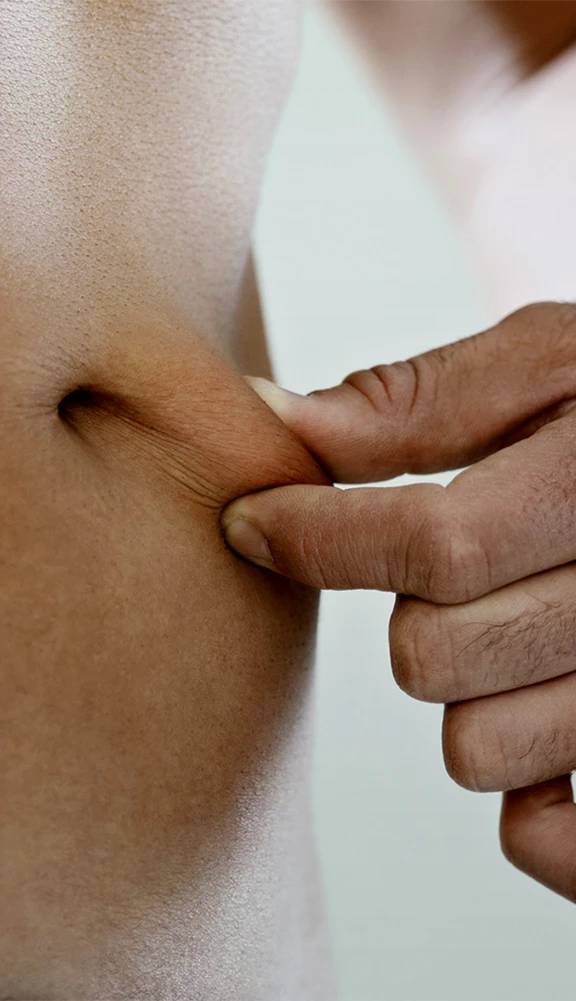Time to read: 4 min
This is why you should skip eating before bed
Sleeping well is a must for your health, energy, and of course the vibe between you and the people around you. Still, many people make the mistake of including food in their bedtime routine. In this blog, we’ll explain why that’s not the best idea and share some tips for a healthy evening routine.
How food affects your sleep quality
1. Disrupted digestion
Eating right before bed can mess with your digestion and impact your sleep quality, especially if it’s a heavy meal. Your digestive system stays active, which makes it harder for your body to fully switch into rest mode.
2. Watch out for heartburn
Lying down on a full stomach can trigger heartburn or acid reflux, both of which can seriously mess up your night. That’s because the valve between your stomach and esophagus relaxes when you lie down, making it easier for stomach acid to come back up. That’s why being mindful about eating before bed is so important.
3. Weight gain
While a late-night bite won’t instantly make the scale go wild, high-calorie snacks can add up and increase your total calorie intake. Over time, that can lead to fat storage and weight gain. Smart timing helps you avoid that.
What happens in your body
Hormonal disruptions
Eating late at night can also mess with your hormones. Insulin, the hormone that helps your body process sugar, is less effective in the evening. This can lead to higher blood sugar levels during the night which affects your sleep quality and overall health.
Disrupted circadian rhythm
Your body has an internal clock called the circadian rhythm that controls when you wake up and when you go to sleep. Eating late in the evening can throw off this rhythm. Understanding the connection between food sleep and your biological clock helps build a healthier routine.
Research
One of the most popular health trackers Whoop conducted a study among its users to measure the impact of late-night eating on sleep and recovery. With Whoop users can log in their daily journal whether they ate shortly before sleeping which allows for an accurate analysis of how this affects sleep quality and recovery.
The study showed that eating late led to an average of 26 minutes less sleep and a 3 percent drop in REM sleep the phase essential for mental recovery. On top of that next-day recovery decreased by an average of 10 percent.
1. Plan your meals earlier in the evening
Try to eat your last big meal at least two to three hours before going to bed. This gives your body time to digest the food before sleep. That way evening eating better matches your natural rhythm.
2. Choose light snacks
If you’re really hungry before bed go for a light and easy to digest snack like a piece of fruit or a handful of nuts. Avoid heavy fatty or sugary snacks that can mess with your digestion.
3. Hydration is key
Drink plenty of water throughout the day but limit your intake in the few hours before bed so you’re not waking up to use the bathroom during the night.
4. Create a relaxing routine
A regular evening routine helps your body and mind prepare for sleep. Think of calm activities like reading doing some yin yoga or taking a warm bath. Skip screens and bright lights at least an hour before bed so you don’t mess with your natural melatonin production.
5. Watch out for caffeine and alcohol
Caffeine and alcohol can disrupt your sleep cycle even if you consume them hours before bedtime. Try to avoid these troublemakers in the late afternoon and evening.
6. Move enough
Regular physical activity can improve your sleep quality but don’t hit the gym too late in the evening. A calm walk after dinner can actually help you wind down and get ready for a good night’s rest.
Alternatives to late night snacks
If you feel the urge to eat right before bed go for healthy light options that won’t disturb your sleep. Like a banana a small bowl of yogurt with blueberries or a handful of nuts.
Conclusion
Eating right before bedtime can negatively affect your sleep quality and overall health. By eating and drinking well during the day you reduce the chances of getting hungry late at night. Plan your last big meal two to three hours before bed and if you get hungry later in the evening choose a light snack. This approach will help you sleep better.
Find your balance
Tips on nutrition, exercise, and health that actually help. Read our blogs and discover everything about your new lifestyle.




